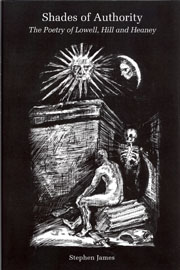The Poet and the Tyrant
from Essays on Robert Lowell
Summary
Robert Lowell's impulse to ‘pity the planet’ is curiously combined with an instinct to ‘pity the monsters’. A litany of notorious despots (both historical and mythological) runs like a dark vein through his poetry. Alexander, Attila, Caligula, Clytemnestra, Hannibal, Hitler, Louis XVI, Mussolini, Napoleon, Richard III, Stalin, Timur: these and many other imperious individuals compel Lowell's attention. While he does not glamourize their violent exploits, his imaginative engagement with the thoughts and deeds of tyrannical personalities evinces a kind of appalled admiration, complicated at times by a degree of sympathy for their self-destructive tendencies. This is bound up with Lowell's attempts to make sense of the ‘tyrant delusions’ and megalomaniac fantasies to which he himself was susceptible at times of acute mental disturbance. As Alan Williamson has observed, Lowell's ‘need for excessive being’, impelled by feelings of omnipotence and by a disempowering loss of a secure sense of self, drove him to find his own ‘lowest depths of possibility’ (‘Caligula’ (LCP 360)) in those whom he considered to be similarly afflicted.
Richard Tillinghast has argued that Lowell's ‘manic identification with tyrants, which gave him insight into power politics, became a limitation because he tended to see the res publica as an extension of his own personality’. Yet the degree to which one regards this tendency as a ‘limitation’ depends upon how far one wishes the work were more responsive to public occasion or historical event than it actually is.
- Type
- Chapter
- Information
- Shades of AuthorityThe Poetry of Lowell, Hill and Heaney, pp. 29 - 45Publisher: Liverpool University PressPrint publication year: 2007

